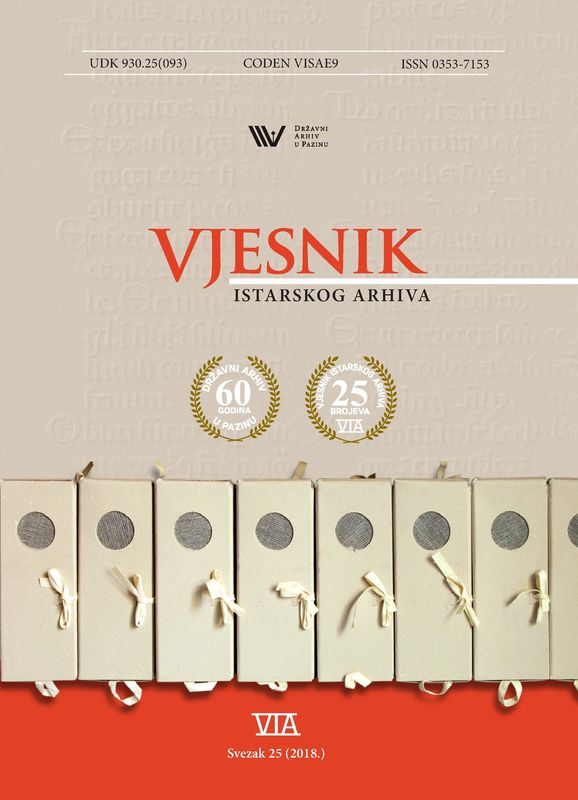Informatization of archive records in the Pazin State Archives
DOI:
https://doi.org/10.31726/via.25.3Keywords:
rules and regulations, record keeping in archives, informatisation, databases, applicationAbstract
In the course of its activities, DAPA performs all professional services related to archival material. One of such tasks is keeping archive records. All information related to archival material kept in DAPA can be obtained by inspecting these records. The records keeping services were introduced as early as in the 1960s. Records were kept conventionally, based on manual entry of data into books. Following the appearance of personal computers and their increasing use, attempts towards a computerized way of keeping records were made in the 1990s. Endeavours were made to take advantage of the benefits of computerization, as using computer technology provided a faster way to access required information and created much less paperwork. The new 1997 Archives and Archival Institutions Act and the 2002 Ordinance on Record Keeping in Archives (and their subsequent amendments) prescribed the keeping of all official records in the archives, and for the first time the keeping of records in electronic form was laid down. Due to several objective reasons, DAPA started records keeping operations in accordance with the new regulations only in 2004. Along with records keeping that continued to be in the conventional form, endeavourse were made to use all the information that was already made in electronic form as part of different recording. In subsequent years, almost all records were kept in electronic form. The year 2011 saw the commencement of development of the “EVIDiS” application for the centralized keeping of all records. It was decided that the application should be made so that data about the records can be accessed through the web pages considering that DAPA employees work in multiple buildings. The choice of open technologies in designing the application has provided a number of benefits, reducing the cost of production and subsequent maintenance. The “EVIDiS” application allows to keep all records in accordance with current legal regulations. Today, all prescribed records and ancillary records are maintained up-to-date, whil data is entered retrospectively based on the documentation that is continuously collected.
Downloads
Published
Issue
Section
License

This work is licensed under a Creative Commons Attribution-NonCommercial 4.0 International License.

